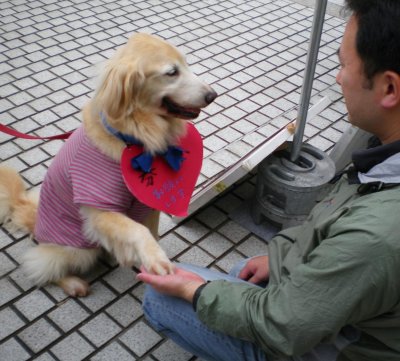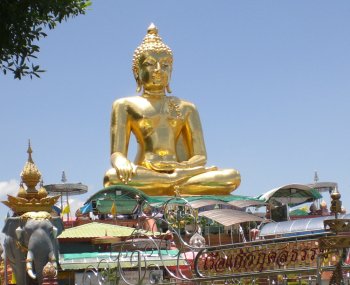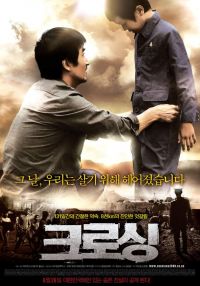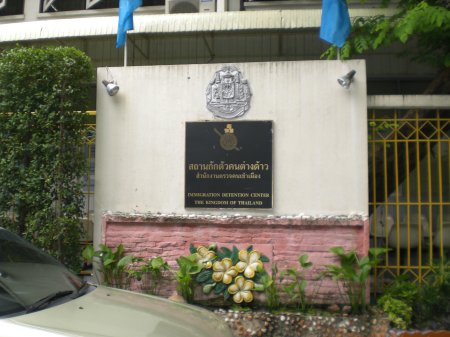Time of Crossing Bo-rit-kko-ge, Barley Hill
In Pyongyang, rice distribution is halted, potatoes are seldom available
On March 26, when the South Korean patrol ship Cheonan was sunk in Korean waters near the Northern Limit Line, 46 South Korean sailors died. An international team of civilian and military investigators from Korea, the United States, the United Kingdom and Australia found that the underwater explosion was caused by a torpedo fired from a North Korean submarine, thus sinking the ship. Pyongyang has denied responsibility.
Rising tensions along the China-North Korea border
Following the sinking of Cheonan, tensions have risen sharply along the China-North Korea border. On the North Korean side of the Tumen River, the number of heavily armed soldiers deployed has tripled since the incident. Every morning and evening, fully equipped North Korean soldiers, are seen chanting and running in formation with their guns in hand.
The head of the border police at the Tumen River customs office now faces greater pressure.
Until the incident, this area had been famous for its border tours, with crowds of people thronging the souvenir shops and restaurants. Tourists took many vacation snapshots home with them from here. In the restaurants, old men sat drinking beer and reminiscing about North Korea.
But in Chinese society, where word of mouth matters, reports of the North Korean troops quickly spread and the number of tourists declined sharply.
One owner of a Tumen River-side restaurant expressed anger with North Korea, and disappointment with the sharp decline in business because customers fear the tense situation in the area. He is also extremely nervous, since no one knows what will happen next, nor when.
Inspectors from the State Security Department and the Central Military Commission
Until the rice planting season in May, the State Security Agency officials from Pyongyang, who had been sent to carry out inspections, were staying in the homes of the border guards and the Sixth Army Corps officers.
Since the incident, however, inspectors from the Central Military Commission have begun reviewing the troops. Tension is also rising in North Korea. At one of our shelters, not one single North Korean has come seeking food since the Cheonan sinking incident. Previously, 30 people a month was typical.
The North Korean border guards, who routinely took half of all rice coming in from China as their own share, are now unable to take any. They are out of business and out of work.
In response to this tense situation, both China and the Shenyang Military Region, in an effort to avoid provoking North Korea, have been secretly taking action to deal with the situation. At the present stage, the local government and the communist party are handling matters and remain on the alert.
China has been trying to maintain an appearance of normalcy, but they continue to watch matters closely.
Though the situation is tense, cross-border traffic between China and North Korea continues to be treated normally. As yet, no restrictions have been imposed.
Fifty thousand passes issued
In November of last year, North Korea informed China that it would issue border passes to 50,000 North Korean citizens. At that time, the announcement was not handled by North Korea’s foreign affairs people. Instead, it was the State Security Department who explained it to China’s police officers.
The reason, they explained, was to allow North Korean citizens access to support from their relatives in China. It is highly probable that, even in Yanji city, many North Koreans have received such passes legally and entered China.
In many cases, the relatives in China are unable to offer much help. In such unfortunate cases they also seek help from churches, from our shelters and from our collaborators.
Without support, North Koreans become refugees
North Koreans usually enter China on one-month visas. Many of them, however, cannot return to North Korea until they have received the help they need. This is because, in many cases, they have borrowed the equivalent of $500 for their visa application fees and travel expenses from their acquaintances and friends. As a result, these North Koreans end up becoming illegal overstayers or refugees, who often then try to depart to third countries.
Seeing this opportunity, some North Koreans have gone to South Korea, so North Korea quickly responded by sending State Security Agency personnel to China to crack down on this practice.
For a while, it had appeared that the North Korean Security Agency had suspended these operations. But according to information from one person within the Chinese police, since the Cheonan incident, more than 100 Security Agency people have been actively operating in Yanji city.
It is time to cross over Bo-rit-kko-ge, Barley Mountain
In Yanji city I met two North Korean refugees from Wonsan-city, Gangwon-do province in early July. This mother and daughter had decided never to return to their home country. They asked me to help them because they are seeking a way to reach South Korea.
Their IDs presented no problem, since they were introduced to me by people with whom I had worked previously. Even so, there was no guarantee they could get to South Korea safely.
Worse, if they happened to be arrested and repatriated to North Korea before they reached South Korea, the names of the people helping them would be uncovered in the course of interrogations, which would put those people in danger. We discussed this, weighing the danger involved against our own safety.
People in Wonsan are being told it is time to cross Bo-rit-kko-ge
(Note: “Bo-ri” means barley and “ko-ge” means high hill or mountain. In the past, in many Asian countries, springtime would bring a period of hunger before the barley was ready for harvest, but after the previous year’s rice had already run out. The expression includes the nuance that it is very hard to get over the mountain before the barley harvest. It was especially bad for the poor. During this season, people usually comb the mountains seeking anything edible, including roots and sprouts, or what we call “san na-mul”, which is basically anything green.)
The mother and daughter told us that that they had no food, no medicine, and that they had lost their property in the currency reform. They expressed anger because they can never expect anything good to happen, no matter how much longer they stayed in North Korea. They said that they had no choice but leave because they simply could not make it over Barley Mountain.
A Korean-Chinese trader, who knows a North Korean doctor working in a Pyongyang ophthalmic hospital, reported that the food situation there had reached its worst point ever. In expressing sympathy for the North Koreans, he used the same phrase: it’s a time of crossing Bo-rit-kko-ge.
Top doctor hasn’t had rice for six months
This ophthalmic hospital was built with support from South Korea. It is said that everything, including medicines, medical equipment and facilities, were sent from South Korea, although all the doctors working there are from Pyongyang. This is a first-rate hospital, yet it needs to obtain food supplies on its own, and cannot manage to accomplish this.
This doctor, the head of his department, hadn’t eaten white rice for half a year. The hospital seldom distributes any kind of food, and only occasionally distributes new potatoes. Thus, even the doctors are suffering from the food crisis.
With the doctors employed in top medical facilities enduring conditions like this, it is clear that ordinary Pyongyang citizens are suffering even more severely from this unprecedented famine.
Special Report by Kato Hiroshi
Executive Director of LFNKR









